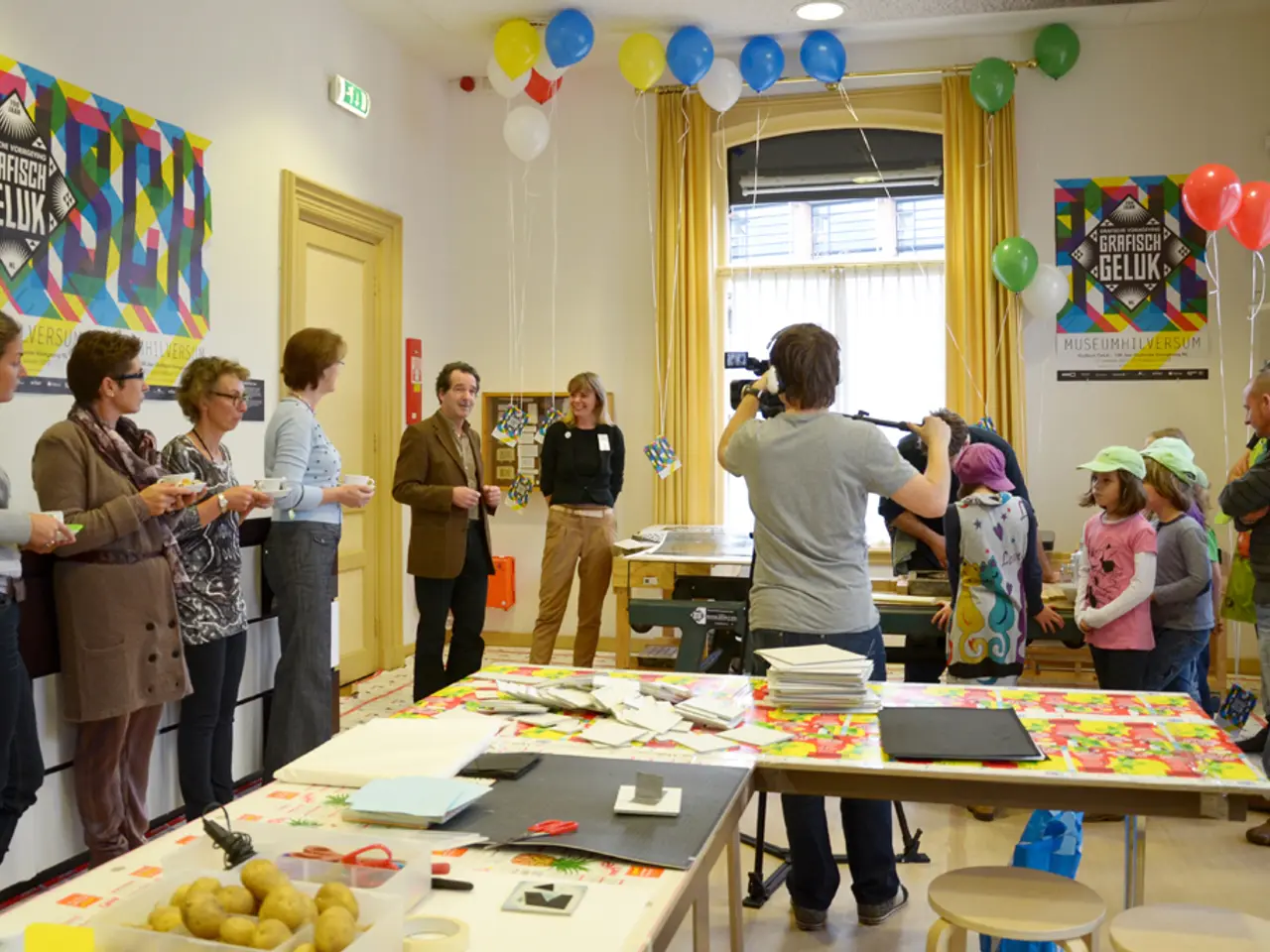Exploring Brooklyn: The Vibrant Yiddish Culture: Balancing Archival, Performance, and Community
In the heart of New York City, during the Christmas holiday week, the annual Yiddish New York festival takes place, celebrating the Yiddish language, music, and culture. This year, the event held significant importance with the inclusion of the "Queer Tribute to Aaron Lebedeff" concert.
The concert, titled "Oy, I Like They...", was a tribute to Aaron Lebedeff, a Yiddish theater star whose career spanned decades and is best remembered for the iconic hit "Roumania, Roumania." The concert aimed to speak to the contemporary Yiddishist community's politic, aesthetic stance, and source of word play and fun.
Aaron Lebedeff, a queer icon within Yiddish theater, was the focus of this special event. The Queer Tribute concert served to reclaim and honor queer figures in Jewish cultural history, fostering pride and connection among LGBTQ+ participants engaged in Yiddish revival.
The concert featured mostly forgotten Yiddish theater hits and attracted a multi-generational audience. The musical arrangements drew heavily on the sounds of psychedelic cumbia, creating a unique and vibrant atmosphere that mirrored Lebedeff's effervescent style.
The musical accompaniment in the Queer Tribute version of "Az Men Farzucht" blurred stable boundaries of identity, while Erica Mancini's synthesizer solo in the arrangement referenced late 1960s rock and placed it in a disoriented temporal and idiomatic space.
The Queer Yiddish aesthetic, which emerged in the 1980s against the backdrop of the AIDS epidemic, offers a refusal of marginalization and centers the experience of "outsiders" to the mainstream. The Queer Tribute to Aaron Lebedeff concert held significant importance within the Yiddish New York festival and the contemporary Yiddishist community, as it highlighted the intersection of queer identity and Yiddish culture, celebrating a historically influential figure in Yiddish musical theater while promoting inclusivity and diversity in the Yiddish revival movement.
The festival, founded in 2015, is known for fostering an intergenerational community. It features concerts by renowned musicians, classes in Yiddish language and klezmer music performance, and lectures on Ashkenazi culture. This year's festival was initially planned to return to in-person concerts and group events, but was conducted online due to the Omicron-variant surge in New York City.
Despite the challenges posed by the Covid-19 pandemic, the exuberance and physical presence that are at the core of theater, and especially events like the Queer Tribute to Lebedeff, continue to shine through, reminding us of the power of community, culture, and the human spirit.
- The Yiddish New York festival, amidst the Christmas holiday week in New York City, is not just about the Yiddish language and music, but also about lifestyle, reflecting the festival's intergenerational community and inclusivity.
- The fusion of Yiddish theater hits with psychedelic cumbia in the Queer Tribute to Aaron Lebedeff concert is a testament to the festival's emphasis on fashion-and-beauty and entertainment.
- In the realm of education-and-self-development, the festival offers classes in Yiddish language and klezmer music performance, fostering personal-growth and career-development for its participants.
- The Queer Tribute concert serves as a platform for skills-training in music arrangement, referencing late 1960s rock and blending it with traditional Yiddish theater pieces.
- As the Queer Tribute to Aaron Lebedeff celebrates a historically influential figure in Yiddish musical theater, it encourages job-search, career-development, and self-empowerment within the Yiddishist community.
- The intersection of queer identity and Yiddish culture in the Queer Tribute concert aligns with the pop-culture's contemporary emphasis on diversity and representation.
- The festival, through its celebration of Yiddish language, music, and culture, contributes to the rich tapestry of sci-fi-and-fantasy, sports, WNBA, sports-betting, basketball, NCAА basketball, NBA, and sports-analysis, encompassing the broad spectrum of human interests.
- The Queer Tribute to Aaron Lebedeff concert, amidst the backdrop of the Omicron-variant surge, demonstrates the resilience and enduring spirit of celebrities, as they navigate through challenges and continue to create and inspire.
- The festival's focus on music and theater showcases the beauty and power of the human spirit, bridging the gap between different generations and cultures, fostering a sense of togetherness and unity.
- As the Yiddish New York festival strives to preserve and revive the Yiddish language and culture, it also educates and promotes understanding of the historical significance of figures like Aaron Lebedeff, contributing to the ongoing dialogue and evolution of pop-culture.




